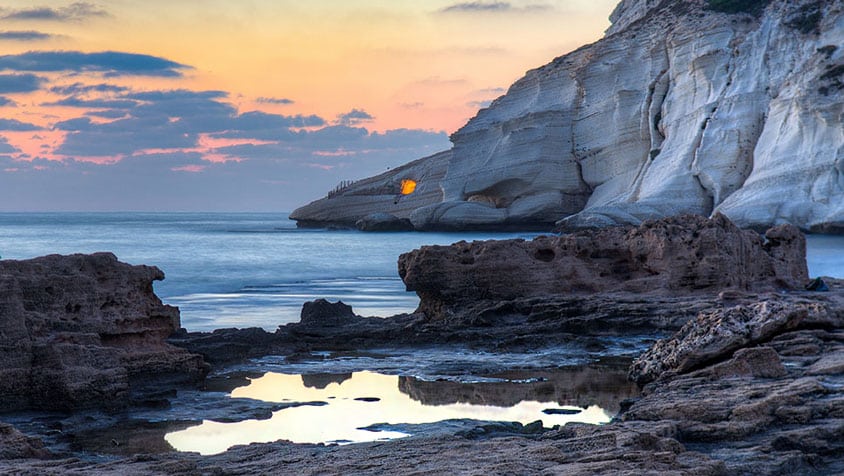Renown by over a handful of other names, such as Lake Kinneret, Lake of Gennesaret, and the Sea of Tiberias, the Sea of Galilee has had a colorful history dating back over 20,000 years. Sitting on the ancient Via Maris (trade route) that connected Egypt with the northern empires of the past, this stunning freshwater lake has played a significant role throughout time.
The Ancient Past
While the shores of the Galilee are widely known as the place where most of Jesus’ ministry occurred, it is important to step even further into the past. During a drought in 1989, Dani Nadel of Haifa University discovered the ancient site of Ohalo II, an ancient site dating back to the Last Glacial Maximum. When first inhabited, the Sea of Galilee was newly formed and attracted many hunter-gatherer cultures searching for fresh water and sustainable life. The organic remains of over 90,000 seeds, grinding stones, and flint tools have been excavated from the site, giving enough evidence and analysis to know that this is one of the most ancient sites discovered in all of history.
Biblical Antiquity
As stated previously, much of the Jesus’ ministry occurred around the Sea of Galilee, most notably recorded in the Synoptic Gospels of Mark and Luke. Continuous development of settlements attracted thousands of individuals along the shores, providing Jesus the necessary means to fulfill His work. Most notably, the Apostles Simon (Peter), Andrew, John, and James were all recruited from the Galilee region. One of Jesus’ most famous teachings, the Sermon on the Mount, is believed to have been delivered on a hill overlooking the Sea of Galilee. Many of His miracles are also believed to have occurred here, including His walking on water, calming of the storm, the boatload of fish with Peter, as well as the feeding of 5,000 people in Tabgha.
It is important to note that in 135 CE, the Romans banned all Jewish people from Jerusalem. Searching for a new place to call “home,” the center of Jewish culture and learning shifted north to the Galilean region around the sea, particularly to the city of Tiberias. It was in this region that the Jerusalem Talmud was compiled and where the Jewish culture thrived for the centuries that followed.
Modern Era
In the early 20th century, Jewish pioneers established the first kibbutz (farming village) on the sea, teaching agricultural methods to the settlers. After British forces defeated the Ottoman Turks in 1920, a new border between Palestine and Syria was created across the middle of the sea, becoming finalized in 1923. During the 1948 invasion of Israel, the territory along the Sea of Galilee came under Syrian possession until the 1967 Arab-Israeli War. Many political and armed confrontations were sparked regarding the sought-after region.
Today
Today, tourism around the Sea of Galilee plays a vital role in the economics of the Holy Land. Attracting many Christian and Jewish pilgrims, the region boasts many other noteworthy sites and activities not previously mentioned. In 2011, Israel unveiled a 40-mile hiking trail named the “Jesus Trail,” following what is believed to be the paths Jesus journeyed during his 3-year ministry recorded in the New Testament. Thousands come yearly to get baptized in the holy waters of the Jordan River. Being called “a ‘fifth gospel’ which one read devoutly, his heart overflowing with quiet joy,” by the 19th century American traveler Alonzo Ketcham Parker, the Sea of Galilee and surrounding region is nothing short of magical.








